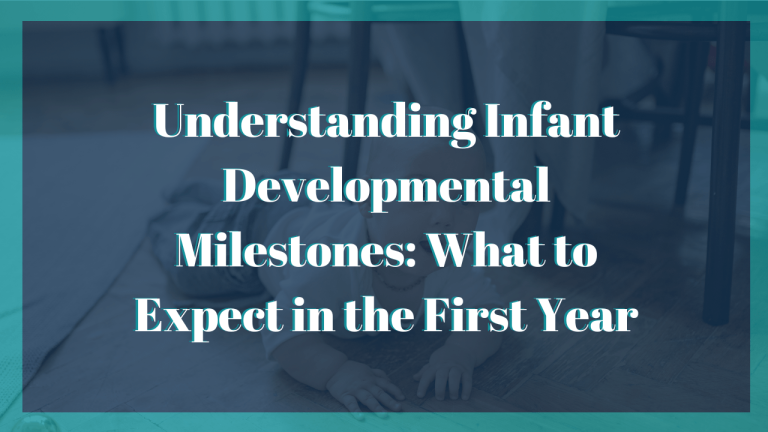Premature Baby Care: Essential Considerations and Tips for Parents 2024
Welcoming a premature baby into the world can be both a joyous and challenging experience. Did you know that nearly 1 in 10 babies in the U.S. are born prematurely? Globally, an estimated 13.4 million babies were born preterm in 2020, highlighting the widespread nature of this issue. The impact of preterm birth is profound, as complications arising from it are the leading cause of death among children under 5 years of age, responsible for approximately 900,000 deaths in 2019 alone. That’s a staggering number, underscoring the importance of being prepared for premature baby care. Whether you’re a new parent or have had experience with full-term babies, caring for a preemie comes with its own unique set of challenges and rewards. In this guide, we’ll explore everything you need to know to provide the best care for your premature baby, from understanding their medical needs to offering emotional support. Let’s dive in and ensure your little one gets the best possible start in life!
Understanding Premature Birth

Premature birth, also known as preterm birth, occurs when a baby is born before the 37th week of pregnancy. This early arrival means that the baby hasn’t had enough time to develop fully in the womb, leading to a range of potential health challenges and developmental concerns. Understanding the intricacies of premature birth is crucial for parents, as it sets the foundation for effective care and informed decision-making.
Classification of Premature Birth
Premature birth is typically classified based on how early the baby is born. Babies born before 28 weeks are considered “extremely preterm,” those born between 28 and 32 weeks are “very preterm,” and babies born between 32 and 37 weeks are “moderately preterm.” Each classification comes with its own set of risks and required medical interventions. The earlier a baby is born, the more complex their medical needs are likely to be, making early detection and specialized care essential.
Common Causes and Risk Factors
Several factors can contribute to the likelihood of a premature birth. Some of the most common causes include maternal health issues like high blood pressure, diabetes, and infections during pregnancy. Additionally, lifestyle factors such as smoking, excessive alcohol consumption, and inadequate prenatal care can increase the risk. Multiple pregnancies (like twins or triplets) and previous premature births are also significant risk factors. Understanding these causes can help parents and healthcare providers take proactive steps to minimize the risk of preterm labor.
Health Challenges Associated with Premature Birth
Babies born prematurely often face a variety of health challenges due to their underdeveloped organs. Respiratory distress syndrome, caused by immature lungs, is one of the most common issues. Other potential complications include jaundice, anemia, and a higher susceptibility to infections. Long-term health challenges can also arise, including developmental delays, learning disabilities, and issues with vision and hearing. Early medical intervention and continuous monitoring are critical to managing these challenges and supporting the baby’s growth and development.
The Importance of Medical Care and Regular Check-Ups
Given the complex health needs of premature babies, regular medical care and monitoring are paramount. From the moment of birth, premature babies often require specialized care in a Neonatal Intensive Care Unit (NICU), where they receive constant attention from healthcare professionals. Even after being discharged from the NICU, these babies need frequent check-ups to track their development and address any emerging issues. Parents should work closely with pediatric specialists to create a comprehensive care plan that addresses both immediate and long-term health concerns.
Medical Care and Monitoring for Premature Babies

Premature babies, or preemies, require specialized premature baby care and continuous monitoring from the moment they are born. Their underdeveloped organs and systems mean they are more vulnerable to health complications, necessitating a level of care that is often intensive and multifaceted. This section delves into the critical aspects of premature baby care and monitoring for premature babies, ensuring they receive the support needed to thrive.
Overview of NICU (Neonatal Intensive Care Unit) Care
The NICU is a specialized environment designed to provide comprehensive premature baby care. Upon birth, most preemies are immediately transferred to the NICU, where they receive around-the-clock monitoring by a team of healthcare professionals. The NICU is equipped with advanced medical technology to support the baby’s vital functions, including breathing, feeding, and temperature regulation. The length of stay in the NICU varies depending on the baby’s gestational age at birth and their overall health, with some preemies requiring weeks or even months of intensive care before they are ready to go home.
Common Medical Equipment Used in Preemie Care
Premature babies often rely on a variety of medical equipment to support their fragile systems. One of the most essential pieces of equipment in the NICU is the incubator, which helps regulate the baby’s body temperature, creating a controlled environment similar to the womb. Respiratory support is another critical component, as many preemies struggle with underdeveloped lungs. Devices such as ventilators, continuous positive airway pressure (CPAP) machines, and oxygen therapy are commonly used to assist with breathing. Additionally, preemies may require intravenous (IV) lines for fluids and nutrition, as well as monitors to track their heart rate, oxygen levels, and blood pressure. This equipment is vital in stabilizing the baby’s condition and facilitating their gradual development.
Monitoring Vital Signs and Growth Milestones
Continuous monitoring of vital signs is crucial for premature babies, as their health can fluctuate rapidly. In the NICU, nurses and doctors keep a close eye on the baby’s heart rate, respiratory rate, and oxygen saturation. Any irregularities are addressed immediately to prevent complications. Alongside vital signs, monitoring growth milestones is equally important. Preemies often have specific growth charts that account for their early birth, focusing on weight gain, head circumference, and length. These milestones help healthcare providers assess the baby’s progress and make necessary adjustments to their care plan. Regular assessments of neurological development, reflexes, and feeding abilities are also conducted to ensure the baby is on the right track.
The Role of Pediatric Specialists in Your Baby’s Care
Premature babies benefit from the expertise of a multidisciplinary team of pediatric specialists. Neonatologists, who specialize in the care of newborns, play a central role in managing the overall treatment plan in the NICU. In addition to neonatologists, preemies may need to see pediatric cardiologists, pulmonologists, neurologists, and gastroenterologists, depending on their specific health needs. These specialists work together to address any complications and provide targeted interventions that support the baby’s growth and development. After discharge from the NICU, ongoing follow-up care with pediatricians and specialists is essential to monitor the baby’s long-term health and development, ensuring any issues are detected and treated early.
Feeding a Premature Baby: Breastfeeding, Bottle Feeding, and Nutrition

Feeding a premature baby presents unique challenges and considerations compared to feeding a full-term baby. Preemies have specific nutritional needs that are vital for their growth and development, and these needs must be carefully managed through a combination of breastfeeding, bottle feeding, and, in some cases, tube feeding. Understanding the nuances of feeding a premature baby is essential for ensuring they receive the right nutrients to thrive.
Nutritional Needs of a Premature Baby
Premature babies have higher nutritional needs than full-term babies due to their rapid growth and development after birth. Their bodies require more calories, proteins, vitamins, and minerals to support their underdeveloped organs and systems. Human milk, whether from the mother or a donor, is often the preferred source of nutrition because it contains essential nutrients and antibodies that are crucial for the baby’s immune system and overall health. In some cases, human milk fortifiers are added to breast milk to increase its nutritional content, ensuring that the baby receives adequate calories and nutrients for healthy growth. The nutritional needs of each preemie can vary, so it’s important for healthcare providers to closely monitor the baby’s growth and adjust their feeding regimen as needed.
Benefits of Breastfeeding and Challenges You Might Face
Breastfeeding a premature baby offers numerous benefits, including the provision of essential antibodies that help protect the baby from infections, which they are particularly susceptible to due to their underdeveloped immune systems. Additionally, breast milk is easier for preemies to digest compared to formula, and it plays a crucial role in supporting their overall development. However, breastfeeding a preemie can be challenging, especially if the baby is too weak to latch properly or lacks the coordination to suck and swallow effectively. Mothers may need to express milk using a breast pump to ensure their baby receives the benefits of breast milk, even if direct breastfeeding isn’t immediately possible. Lactation consultants and NICU staff can provide guidance and support to help mothers establish and maintain their milk supply during this critical time.
Bottle Feeding and Formula Options for Preemies
When direct breastfeeding isn’t possible, bottle feeding becomes an important alternative. For premature babies, bottle feeding requires specialized techniques and equipment to ensure they receive the right amount of nutrition without overwhelming their delicate systems. Preemies often use specially designed nipples and bottles that control the flow of milk, helping them feed more effectively. In cases where breast milk is not available or sufficient, preemies may need to be fed formula. Preterm formulas are specifically formulated to meet the higher nutritional needs of premature babies, providing extra calories, proteins, and essential nutrients. Healthcare providers will work with parents to determine the best feeding plan, whether it involves breast milk, formula, or a combination of both.
Tube Feeding and When It’s Necessary
Some premature babies are too small or too ill to feed by mouth, making tube feeding a necessary intervention. Tube feeding delivers nutrition directly to the baby’s stomach through a thin tube inserted through the nose or mouth, known as a nasogastric (NG) or orogastric (OG) tube. This method ensures that the baby receives the essential nutrients they need to grow and develop, even if they are unable to suck or swallow effectively. As the baby grows stronger, they can gradually transition from tube feeding to bottle or breastfeeding. The transition process is carefully monitored by healthcare providers to ensure the baby is ready and can handle the change without any complications.
Creating a Safe and Comfortable Home Environment

Bringing a premature baby home from the hospital is a significant milestone, but it also comes with the responsibility of creating a safe and comfortable environment tailored to their specific needs. Premature babies are more vulnerable to infections, temperature fluctuations, and overstimulation, making it crucial for parents to carefully prepare their home to support their baby’s health and well-being. This section explores the key considerations for ensuring that your home is a nurturing space where your preemie can thrive.
Setting Up a Temperature-Controlled Environment
Premature babies have a harder time regulating their body temperature due to their low body fat and underdeveloped skin. Maintaining a stable and comfortable temperature in your home is essential to prevent your baby from becoming too cold or too hot. The ideal room temperature for a preemie is typically between 68-72°F (20-22°C). Using a room thermometer can help you monitor the temperature consistently. Additionally, dress your baby in layers, such as a onesie and a swaddle, to keep them warm without overheating. Avoid using heavy blankets or quilts, as these can increase the risk of suffocation and sudden infant death syndrome (SIDS).
Reducing Exposure to Germs and Infections
Premature babies have underdeveloped immune systems, making them more susceptible to infections. To protect your baby, it’s important to minimize their exposure to germs. Ensure that everyone who handles your baby washes their hands thoroughly with soap and water. It’s also a good idea to limit visitors, especially during flu season, and ask anyone who is feeling unwell to postpone their visit. Keep your home clean by regularly disinfecting surfaces, especially in areas where your baby spends time. Consider using a HEPA air purifier to reduce airborne allergens and pathogens. If your baby was discharged from the NICU with a respiratory condition, you might also need to limit their exposure to potential irritants like smoke, strong odors, and pet dander.
Creating a Calm and Quiet Space
Premature babies can easily become overstimulated by noise, bright lights, and excessive handling. Creating a calm and quiet environment is key to helping your baby feel secure and comfortable. Choose a quiet room in your home for your baby’s nursery, away from the main living areas and any sources of loud noise. Use blackout curtains to dim the room during nap times and reduce the intensity of lights. A white noise machine can be helpful in masking household noises and creating a soothing background sound. Additionally, establish a routine that includes regular nap times and feedings to provide a sense of predictability and comfort for your baby.
Selecting the Right Sleep Surface and Positioning
Ensuring that your premature baby has a safe sleep environment is one of the most important steps you can take. The American Academy of Pediatrics (AAP) recommends that babies sleep on their backs on a firm, flat surface, such as a crib or bassinet, without any soft bedding, pillows, or stuffed animals. This sleep position significantly reduces the risk of SIDS, which is higher in preemies. Opt for a crib with a firm mattress and a fitted sheet, and avoid using crib bumpers or sleep positioners. Some parents of preemies choose to use a sleep monitor that tracks their baby’s breathing and movements, but it’s important to consult with your pediatrician to determine if this is necessary and to ensure it’s used safely.
Providing Comfort and Bonding Opportunities
Creating a comfortable home environment also involves fostering opportunities for bonding and comfort. Skin-to-skin contact, also known as kangaroo care, is particularly beneficial for premature babies, helping to regulate their body temperature, heart rate, and breathing. It also strengthens the emotional bond between you and your baby. Ensure that you have a comfortable chair or recliner in your baby’s room where you can practice skin-to-skin care and spend quiet moments together. Swaddling your baby in a lightweight blanket can also provide comfort and mimic the snug environment of the womb, which is reassuring for preemies. Gentle rocking, soft lullabies, and soothing touch are other ways to comfort your baby and enhance your bond.
Emotional Support and Bonding with Your Premature Baby

Bonding with a premature baby can be a deeply emotional and rewarding experience, but it also comes with unique challenges. The early days in the Neonatal Intensive Care Unit (NICU) can be overwhelming for parents, with medical equipment and constant monitoring sometimes creating a sense of separation. However, building a strong emotional connection with your preemie is crucial for their development and your own emotional well-being. This section explores the ways you can provide emotional support and foster a deep bond with your premature baby, even in the face of these challenges.
The Importance of Early Bonding and Attachment
Bonding with your baby is an essential part of their emotional and physical development. Research shows that early bonding and secure attachment contribute to a baby’s cognitive development, emotional regulation, and social skills. For premature babies, who may have faced significant medical challenges from birth, feeling secure and loved is particularly important. This bond is not only comforting but also has tangible benefits for their growth and development, as it can help reduce stress levels and promote healing. While the NICU environment may initially feel like a barrier to bonding, there are many ways to build a strong connection with your baby from the very beginning.
Practicing Kangaroo Care
Kangaroo care, or skin-to-skin contact, is one of the most effective ways to bond with your premature baby. This practice involves holding your baby against your bare chest, allowing them to feel your warmth, heartbeat, and breathing. For preemies, kangaroo care has been shown to stabilize their heart rate, improve oxygen levels, and support weight gain. It also provides a comforting, womb-like environment that helps your baby feel secure. For parents, this close physical contact can strengthen the emotional bond and reduce feelings of helplessness or anxiety. Many NICUs encourage parents to practice kangaroo care as soon as their baby is stable enough, making it a cornerstone of early bonding.
Talking, Singing, and Reading to Your Baby
Although your premature baby may not be able to respond verbally, your voice is a powerful tool for bonding. Talking, singing, and reading to your baby helps them recognize your voice and feel connected to you, even when they are in the NICU. The sound of your voice can be soothing, providing reassurance in an unfamiliar environment. Singing lullabies or reading stories can also become part of your daily routine, creating a sense of normalcy and comfort for both you and your baby. Over time, these interactions help to establish a strong emotional connection, which is beneficial for your baby’s cognitive and emotional development.
Eye Contact and Gentle Touch
Non-verbal communication, such as eye contact and gentle touch, plays a crucial role in bonding with your premature baby. When your baby is awake and alert, make eye contact to help them recognize and connect with you. This visual connection is an important part of their social and emotional development. Additionally, gentle touch, such as stroking their hands or feet, can be soothing and reassuring. Even when your baby is in an incubator or receiving medical care, you can often reach in to touch them, providing comfort through physical contact. Over time, these simple acts of connection help your baby feel secure and loved, laying the foundation for a strong bond.
Navigating the Emotional Challenges of the NICU
The NICU experience can be emotionally challenging for parents, as it often involves feelings of fear, anxiety, and uncertainty. It’s important to acknowledge these emotions and seek support when needed. Many NICUs offer resources such as counseling, support groups, or social workers who can help you navigate the emotional ups and downs of having a premature baby. Building a support network of family, friends, and healthcare providers can also provide comfort and reassurance during this time. Remember that taking care of your own emotional well-being is crucial, as it enables you to be fully present and supportive for your baby.
Creating a Routine and Celebrating Milestones
Establishing a routine can provide a sense of stability and predictability for both you and your baby, helping to strengthen your bond. Whether it’s visiting the NICU at the same times each day, practicing kangaroo care regularly, or reading to your baby every evening, these routines can help create a sense of normalcy in an otherwise challenging situation. Additionally, celebrating your baby’s milestones, no matter how small, can be a powerful way to bond. Whether it’s their first successful feeding, gaining weight, or moving out of the incubator, these moments are significant and deserve to be acknowledged. Celebrating these milestones helps you stay positive and connected to your baby’s progress.
Monitoring Developmental Milestones and Long-Term Care

Monitoring the developmental milestones of a premature baby is an ongoing process that requires careful attention and a tailored approach. Premature babies often have a different developmental trajectory compared to full-term infants, making it crucial for parents to understand what to expect and how to support their baby’s growth and development over time. This section delves into the key aspects of tracking developmental milestones and the importance of long-term care for preemies.
Understanding Adjusted Age and Developmental Expectations
One of the first things to understand when monitoring your premature baby’s development is the concept of adjusted age. Since premature babies are born before their due date, their developmental milestones are typically measured based on their adjusted age rather than their actual birth date. Adjusted age is calculated by subtracting the number of weeks your baby was born early from their chronological age. For example, if your baby is six months old but was born two months early, their adjusted age would be four months. This adjusted age helps provide a more accurate picture of where your baby should be in terms of developmental milestones, such as smiling, rolling over, or sitting up.
Regular Developmental Screenings and Early Intervention
Because premature babies are at a higher risk for developmental delays, regular developmental screenings are essential. These screenings, typically conducted by your pediatrician, assess your baby’s motor skills, cognitive abilities, language development, and social interactions. Early detection of any delays or concerns allows for timely intervention, which can significantly improve outcomes for your baby. Early intervention services, such as physical therapy, occupational therapy, or speech therapy, are often recommended to support your baby’s development. These services are tailored to address specific areas of need, helping your baby reach their full potential as they grow.
Monitoring Physical Growth and Health
In addition to developmental milestones, it’s important to closely monitor your premature baby’s physical growth and overall health. Premature babies may experience slower growth compared to full-term infants, but they typically catch up by the time they are two to three years old. Your healthcare provider will track your baby’s weight, length, and head circumference during regular check-ups to ensure they are growing appropriately for their adjusted age. It’s also important to stay vigilant for any potential health issues that are more common in preemies, such as respiratory problems, vision and hearing issues, and feeding difficulties. Regular follow-ups with specialists, such as a pediatric ophthalmologist or audiologist, may be necessary to monitor these aspects of your baby’s health.
Supporting Cognitive and Social-Emotional Development
Cognitive and social-emotional development are key areas to focus on as your premature baby grows. Engaging in activities that stimulate your baby’s brain, such as reading, playing, and talking to them, can support cognitive development. Encouraging social interactions with family members and other children, when appropriate, helps your baby develop social skills and emotional regulation. It’s important to be patient and understanding, as premature babies may take longer to reach certain milestones, such as babbling or forming social bonds. Providing a nurturing and stimulating environment at home plays a crucial role in supporting your baby’s cognitive and social-emotional growth.
Planning for Long-Term Care and Support
Long-term care for a premature baby often involves ongoing support and monitoring well beyond the first few years of life. Some preemies may require additional educational support, specialized medical care, or therapy as they enter preschool and beyond. It’s important to maintain open communication with your healthcare team and educators to ensure that your child receives the appropriate resources and support. Additionally, joining a support group for parents of premature babies can provide valuable insights and emotional support as you navigate the challenges and triumphs of raising a preemie.
Support for Parents: Coping with Stress and Anxiety

Caring for a premature baby can be an emotionally intense experience, filled with both joy and anxiety. The uncertainty of your baby’s health, the extended time in the Neonatal Intensive Care Unit (NICU), and the constant worry about developmental milestones can all contribute to significant stress and anxiety. It’s essential to recognize that these feelings are normal and to seek out strategies and resources to manage them effectively. This section explores various ways parents can cope with the emotional challenges of raising a premature baby and ensuring their well-being as they care for their little one.
Acknowledging and Accepting Your Emotions
The first step in coping with stress and anxiety is to acknowledge and accept your emotions. It’s natural to feel a range of emotions, from fear and sadness to guilt and frustration. You might worry about your baby’s health, feel overwhelmed by the medical information, or experience sadness over the loss of a “normal” birth experience. Accepting these emotions without judgment is crucial. Remember that it’s okay to feel vulnerable, and you don’t have to be strong all the time. By acknowledging your feelings, you can begin to address them healthily and constructively.
Seeking Professional Support and Counseling
Sometimes, the stress and anxiety associated with caring for a premature baby can become overwhelming, and professional support is necessary. Seeking counseling or therapy can provide a safe space to express your feelings and develop coping strategies. Many hospitals offer support services for parents of preemies, including access to social workers, psychologists, or counselors who specialize in neonatal care. These professionals can help you navigate the emotional complexities of the NICU experience, manage anxiety, and find ways to cope with the challenges ahead. Joining a support group for parents of premature babies can also be beneficial, as it allows you to connect with others who understand what you’re going through.
Building a Support Network
Having a strong support network is vital for managing stress and anxiety. Family members, friends, and healthcare providers can all play a role in providing emotional and practical support. Don’t hesitate to reach out to loved ones for help, whether it’s with daily tasks, taking care of older children, or simply offering a listening ear. Sharing your concerns and experiences with others can alleviate feelings of isolation and help you feel more supported. Additionally, connecting with other parents of premature babies through online forums, social media groups, or local meet-ups can provide valuable insights and encouragement. These connections can help you feel less alone and more empowered to face the challenges of raising a preemie.
Practicing Self-Care and Mindfulness
Amidst the demands of caring for a premature baby, it’s easy to neglect your own needs. However, practicing self-care is essential for your well-being and your ability to care for your baby. Simple self-care activities, such as taking short walks, practicing deep breathing exercises, or enjoying a quiet moment with a cup of tea, can help reduce stress levels. Mindfulness practices, such as meditation or yoga, can also be effective in managing anxiety. These practices encourage you to stay present and focused, reducing the impact of stress and helping you maintain a sense of calm. Even small moments of self-care can make a significant difference in your emotional health.
Understanding the Importance of Rest
Sleep and relaxation are often in short supply when caring for a premature baby, especially if they require frequent feedings or medical attention. However, rest is crucial for your mental and physical health. Lack of sleep can exacerbate feelings of stress and anxiety, making it harder to cope with the demands of caregiving. Whenever possible, try to prioritize rest, even if it means asking for help or taking short naps when your baby is sleeping. If you find it difficult to relax, consider listening to calming music, practicing progressive muscle relaxation, or engaging in a hobby that you enjoy. Taking time to rest and recharge can improve your resilience and overall well-being.
Focusing on Positive Moments and Celebrating Progress
While the journey of raising a premature baby is often challenging, it’s important to focus on the positive moments and celebrate your baby’s progress. Whether it’s a successful feeding, gaining weight, or reaching a new milestone, these achievements deserve recognition. Celebrating these moments can help shift your focus from fear and anxiety to joy and gratitude, providing emotional balance. Keeping a journal or creating a memory book to document your baby’s milestones and your own experiences can also be a therapeutic way to process your emotions and reflect on the progress you’ve both made.
Conclusion
Caring for a premature baby is a journey filled with unique challenges and incredible rewards. By focusing on premature baby care and understanding the special considerations involved, you can provide your baby with the best possible care. Remember, you’re not alone on this journey—reach out for support, trust your instincts, and celebrate every small victory along the way. Together, you and your baby will overcome these challenges and thrive. Keep these premature baby care tips and considerations in mind, and you’ll be well on your way to helping your little one grow and develop in a loving and supportive environment!







